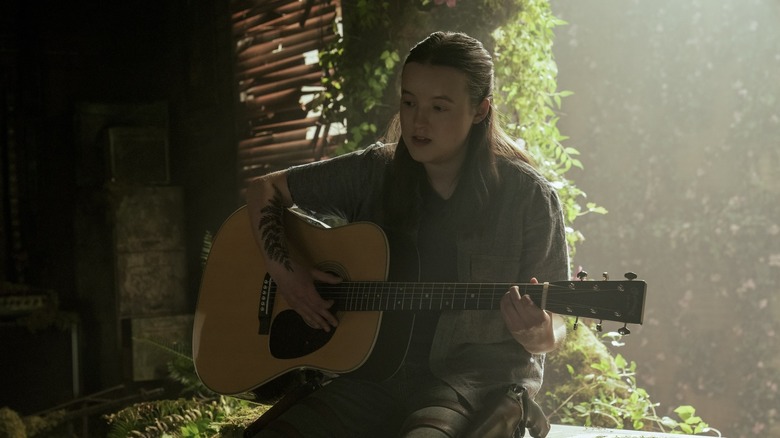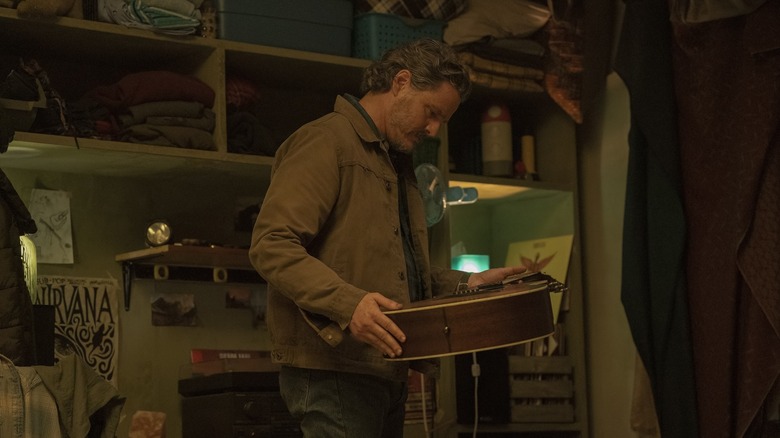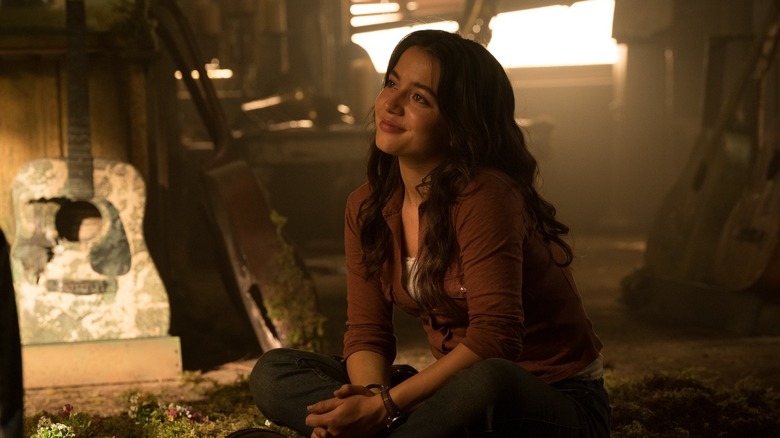Music is a crucial ingredient via each the “Final of Us” video video games and the live-action HBO adaptation. Each have a robust model of major background music, which depends on a whole lot of acoustic guitar to play into the story’s neo-zombie-Western vibe. Along with the scoring, “The Final of Us” additionally depends closely on diegetic music. Joel (Pedro Pascal) performs guitar himself and tells Ellie (Bella Ramsey) in season 1 that he would have appreciated to have been a singer. In season 2, she’s realized to play too after years of studying from him, although the schism of their relationship pushes her away from the instrument.
Commercial
There are different notable examples, like using Linda Ronstadt’s “Lengthy Lengthy Time” in the course of the Invoice (Nick Offerman) and Frank (Murray Bartlett) episode of season 1, by which the heartbreaker tune serves as each episode title and thematic throughline.
Now that we’re stepping into the later elements of “The Final of Us” season 2, Ellie has had a few guitar moments, first taking part in an acoustic cowl of A-ha’s “Take On Me” for Dina (Isabela Merced) in episode 4. In episode 5, she pulls out one other guitar within the previous theater the place they’re hiding out in Seattle, however she solely will get a number of notes in earlier than showing to be overcome by emotion and setting the instrument again down. Her phrases are arduous to make out if you do not know what you are listening for, however the music she begins to sing is Pearl Jam’s “Future Days” — a observe with deep significance within the “Final of Us” video video games, and now, it appears, within the present as properly.
Commercial
Pearl Jam’s Future Days is Joel and Ellie’s music
“If I ever had been to lose you, I might certainly lose myself.” That is the opening line of “Future Days,” which Ellie can not seem to get via with out considering of Joel’s demise and their unresolved stress as soon as once more. Whereas we do not know that for certain within the present, it is the case within the video games, and it is protected to imagine that the music is being utilized in the identical manner on HBO. Ellie does not attempt to play it till episode 5, however the music shares its title with the primary episode of “The Final of Us” season 2, organising its significance from the beginning. The truth that Pearl Jam is from Seattle solely makes the music’s context within the story extra acceptable.
Commercial
The importance of “Future Days” within the franchise goes all the best way again to a dwell occasion organized by sport developer Naughty Canine and Sony a 12 months after the primary sport’s launch, at which key story scenes had been acted out by the unique actors, underscored by a dwell orchestra. On the finish of the occasion, sport director Neil Druckmann and the forged and crew added slightly bonus scene set after the tip of the sport, that includes “Future Days” as a type of send-off for Ellie and Joel. Years later, when “The Final of Us Half II” was launched, that scene and the music’s bigger significance grew to become an enormous piece of the sequel.
It is a devastating alternative given all the long run days Joel and Ellie do not get to share collectively. “Again after I was feeling damaged, I targeted on a prayer,” Eddie Vedder sings in a later verse. “You got here deep as any ocean, Did one thing on the market hear?” It is comprehensible why Druckmann selected this specific music given its relevance for Joel specifically. As Ellie tries and fails to get the phrases out in Seattle, we perceive fully why she’s turn into so fixated on avenging Joel’s demise.
Commercial
The usage of Future Days in The Final of Us truly does not make sense
Whereas “Future Days” is a stunning and lyrically apt music to anchor the story of “The Final of Us,” it did not truly make sense within the video video games, and it makes even much less sense within the present. Let me clarify.
Commercial
“Future Days” is the ultimate observe on Pearl Jam’s “Lightning Bolt” album, which they launched in October 2013. Within the timeline of the video games, the place the cordyceps outbreak happens earlier that very same 12 months, that made it anachronistic, because the world would have collapsed simply earlier than the music truly made it to the airwaves. The HBO sequence pushes the outbreak up a decade to 2003, making it much more noticeable how temporally inappropriate the music’s inclusion is.
Druckmann and sequence co-creator Craig Mazin addressed this challenge on the primary episode of HBO’s The Final Of Us Podcast season 2 — a necessity of their eyes given the episode sharing the identical title because the Pearl Jam music. “That music did not exist in 2003 when the world ended,” Mazin stated bluntly on the podcast. “Neil and I had a strong dialog and arrived on the following conclusion: We did not give a s*** as a result of it is a crucial music to the story, and thematically, it is extremely essential.”
Commercial
Within the grand scheme of issues, one music misplaced in time definitely does not appear value getting up in arms about, particularly in a narrative the place we have already suspended our disbelief sufficient to deal with the entire mushroom zombie factor.




